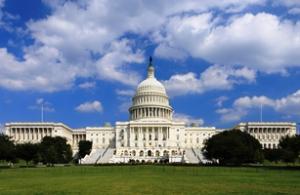Marijuana Policy
A key House committee has eliminated all marijuana-related amendments to the defense spending bill, leaving intact a ban on marijuana testing for recruits, and more.

The language that remains intact in the NDAA bill reads:
SEC. 531 PROHIBITION ON CANNABIS TESTING FOR ENLISTMENT OR COMMISSION IN CERTAIN ARMED FORCES.
Subject to subsection (a) of section 504 of chapter 31 of title 10, United States Code, the Secretary of the military department concerned may not require an individual to submit to a test for cannabis as a condition of enlistment of such individual as a member, or the commission of such individual as an officer, of an Armed Force.
New York Issues 105 More Pot Business Licenses, Okays Home Cultivation. The state's Cannabis Control Board announced Wednesday it had issued 105 new licenses for adult-use marijuana businesses and legalized home cultivation as part of an overhaul of marijuana regulators.
The new licenses include 25 for growers, 22 for distributors, 22 for microbusinesses, 19 for processors, and 17 for retail pot shops. There were also 45 licenses issued for people who had held conditional licenses. More than half (55 percent) of the new licenses were for social equity applicants.
That brings the number of legal retail marijuana outlets in the state to 132, a figure far surpassed by unlicensed pot shops that sprang up between legalization and its implementation. The total number of marijuana business licenses issued in the state so far this year now stands at 654.
The Cannabis Control Board also approved regulations for home cultivation. Under the rules, people 21 and over can grow up to six plants, with a limit of 12 plants per household.
New York City Cracks Down on Unlicensed Pot Shops. Faced with a flood of unlicensed marijuana retailers in the city, the city is using new enforcement powers to shut down some of the hundreds of the shops. A special task force aimed at the shops has shut down 311 beginning in early May.
Inspection teams also seized more than $10 million worth of products and issued $23.4 million in fines. Another 325 of the shops have been put on notice.
Earlier efforts to shutter the shops foundered because the stores could reopen in hours while officials had to go to court to seek to shut them down permanently. But now, thanks to changes in the state budget and the city codes, the Sheriff's Office can declare the shops an imminent threat to the public and shutter them immediately for up to a year.
Drug Policy
AMA's House of Delegates Endorses Drug Decriminalization. The American Medical Association (AMA) has voted to support drug decriminalization, with its House of Delegates endorsing the position at its meeting in Chicago on Wednesday.
The decision to adopt the new policy had broad support, passing by a margin of 345-171. It replaces the AMA's previous position on the issue, which called for the group to "continue to monitor the legal and public health effects of state and federal policies to reclassify criminal offenses for drug possession for personal use."
The revised language from the AMA's reference committee took a much stronger stance, calling for the "elimination of criminal penalties for drug possession for personal use as part of a larger set of related public health and legal reforms designed to improve carefully selected outcomes."
The move comes as decriminalization faces headwinds. Lawmakers in Oregon voted recently to undo voter-approved decriminalization, while lawmakers in British Columbia have recriminalized previously decriminalized public drug possession.
"There is, in fact, evidence that decriminalization can have public health benefits if it is done correctly. We would suggest that we have yet to see it done correctly" in the US, said Stephen Taylor, MD, MPH, of Atlanta, Georgia, who spoke for the American Society of Addiction Medicine (ASAM)
This work by StoptheDrugWar.org is licensed under Creative Commons Attribution-ShareAlike 4.0 International
Add new comment